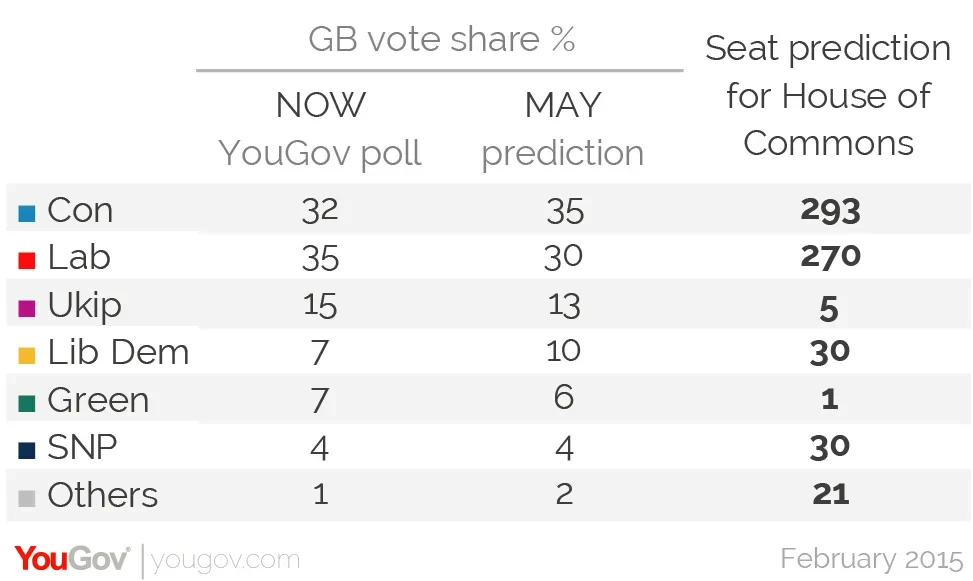In Peter Kellner's latest election prediction, Labour's Scottish seat tally falls from 31 to 24
Despite winning last week’s skirmishes on tax avoidance, Ed Miliband’s prospects of becoming Prime Minister are fading. Labour remain on course to win up to 30 seats in England and Wales, but could see their route to power blocked by the Scottish National Party juggernaut north of the border.
Last month, in my first election prediction, I expected Labour to stage a partial come-back in Scotland and retain 31 of the 41 seats they won in 2010. However, I also noted that this would leave a number of Labour MPs nursing narrow majorities.
Since then, Jim Murphy, Labour’s new Scottish leader, has fought pugnaciously to revive the party’s fortunes, with bold new policies (such as promising to hire 1,000 more nurses from the proceeds of the UK-wide Mansion tax, which very few Scots will pay). Yet the poll numbers have refused to shift. Murphy’s personal ratings lag behind those of Nicola Sturgeon, Scotland’s new First Minister. Moreover, few Scots seem troubled by warnings that a strong SNP performance would help the Tories retain power at Westminster. Like the English, though perhaps more surprisingly, Scots favour David Cameron over Miliband by two-to-one.
I have therefore reduced my prediction for Labour’s Scottish seat tally from 31 to 24. This still assumes that Labour will eventually trim the SNP’s lead from around 20% to 6-8%. If Murphy cannot manage even this, Labour could end up with as few as 10-15 seats. There is even a chance that Labour’s Scottish losses would more than wipe out its gains south of the border, and that the party would end up even fewer MPs overall than in 2010.

Labour’s best hope – and the Conservatives’ worst fear – is that last week’s stories about Tory donors and tax avoidance have a lasting effect. Labour’s current 3% lead follows weeks of near-level-pegging. However, I expect this boost to Labour’s fortunes to subside as the news agenda moves on.
If my new prediction is exactly right, then Cameron will plainly be in the driving seat in the days after the election. Theoretically, a Labour/SNP/Lib Dem block would have 330 seats and an overall majority of ten; but I doubt that Nick Clegg (or his successor) will think it wise to team up with a Labour Party that does little better overall than five years ago. With the Lib Dems likely to lose around half their seats, they won’t want to be blamed for creating a dangerous liaison of losers in order to hang onto a handful of ministerial cars and red boxes.
In those circumstances, Sturgeon’s offer to vote with Labour on major issues won’t be enough to propel Miliband into Downing Street.
That said, the character of Britain’s post-election politics, and the likelihood of second election this year or next, will depend on the precise seat numbers. It would take only modest movements from my central prediction to transform what happens. But for Miliband, the basic truth is inescapable: he can’t become Prime Minister unless Labour can win back hundreds of thousands of votes from the SNP.
As things stand, Cameron could be the first Tory leader for more than half a century to have good reason to say on election night: “Thank you, Scotland”.
This analysis first appeared in the Sunday Times







